Rep Mo Brooks calls Nancy Pelosi State of the Union cancellation unprecedented and radical
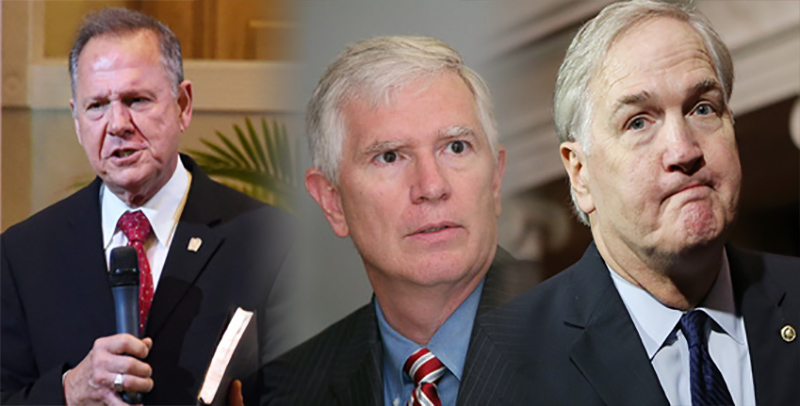
Republican Congressman Mo Brooks released a statement Wednesday in the wake of Speaker Nancy Pelosi telling President Donald Trump that the House would not authorize a State of the Union speech while the government was shut down. In the statement, Brooks called Pelosi’s action “unprecedented” and “radical.” It read, in part, “Speaker Nancy Pelosi’s first-time-in-history cancellation of a president’s State of the Union address shows how radical and hyper-partisan the Democrats have become and undermines bipartisanship at a time America needs it the most. This unprecedented attempt to muffle the President may appease the radical, Socialist base of the Democrat Party, but it hurts America and symbolizes how dysfunctional a Socialist Democrat House of Representatives has made Washington.” Brooks also reintroduced the EL CHAPO (Ensuring Lawful Collection of Hidden Assets to Provide Order Act) Wednesday, a companion to a bill introduced by Ted Cruz in the Senate. This legislation would set aside $14 billion forfeited to the United States as a result of prosecuting drug cartel leaders including El Chapo, and using those funds to build the border wall. In a statement, Brooks said this would help to end the shutdown. “Congress should end the shutdown by passing the EL CHAPO Act that, over time, funds border security and a border wall by using billions of dollars in seized drug and blood money profits from drug cartels and drug lords and reapplying those drug forfeiture monies to border security and construction of a border wall.” Should the shutdown continue, the Congressman has suggested another solution. Last week, Brooks was one of several members of Congress who proposed the speech be moved to the Senate. At that time, he said “I most strongly encourage Vice-President Mike Pence, in his Constitutional capacity as the presiding officer of the Senate, and Senate Majority Leader Mitch McConnell, to invite President Trump to report to the American people on the state of the union in the Senate Chamber. While traditionally these addresses have been held in the House Chamber due to its larger size, inasmuch as House Democrats apparently do not want to hear from the President anyway, overcrowding of the Senate chamber should not be an issue. I urge President Trump, Vice-President Pence (as President of the Senate), and Leader McConnell to maintain January 29, 2019 as the date on which President Trump can address the American people from the Senate Chamber, thus putting President Trump with our first president, George Washington, who also gave his first State of the Union address in the Capitol’s Senate Chamber.”
After years of effort Alabama issues midwife licenses for first time since 1976

The state of Alabama has issued its first licenses to out-of-hospital midwives since 1976. Al.com reports the newly-formed Alabama State Board of Midwifery on Friday approved the licensing of five certified professional midwives. It’s illegal to practice unlicensed midwifery in Alabama, and for decades, the lack of licensing effectively outlawed lay midwifery in the state. State lawmakers voted in 2017 to legalize midwifery, and the State Board of Midwifery began accepting license applications last year. Board member Kaycee Cavender says she’s been pleasantly surprised at the number of licensing applicants. According to the Facebook Page for the Alabama Midwives Alliance the first five Licensed Midwives were, ” Rebekah Myrick, Karen Brock, Tori Dennis, Stacey Cochran Bufkin and Layla Brown.” Certified professional midwives differ from certified nurse midwives, which are registered nurses who work in hospitals and medical clinics. Certified professional midwives are accredited through a testing and apprenticeship process and can attend low-risk births in out-of-hospital settings. The Associated Press contributed to this report, with permission.
Local and state officials react to death of Mobile police officer Sean Tuder

Sean Tuder, a 30 year-old police officer from Mobile, was shot and killed in the line of duty Sunday. AL.com reports that Tuder joined the Mobile Police Department in March 2016 and was named officer of the month in August of 2017 for his exceptional service. MPD Chief Lawrence Battiste spoke about Tuder outside of the emergency room at Providence Hospital saying, “He was one of those guys that certainly resonates in your mind as a true leader, a true commitment to doing his best in this community to keep it safe and to be a role model for others. Officer Tuder was one of those guys that believed in mentoring and help bringing other officers along.” Mobile’s Mayor Sandy Stimpson took to Twitter with a statement. Earlier today, Mobile lost one of our best and finest, Officer Sean Tuder. We send our thoughts and prayers to his friends and family during this tragedy. We mourn together as a community and we love together as a community. pic.twitter.com/PTSSOHqtoj — Mayor Sandy Stimpson (@MayorStimpson) January 21, 2019 Ashley Rich, Mobile District Attorney, posted a tribute to Tuder on Facebook which read “The city of Mobile lost one of its finest officers today. This tragedy is a stark reminder of the dangers that the brave men and women of law enforcement face everyday. I would like everyone to take a moment to remember the man who made the ultimate sacrifice while protecting our community. Please keep Officer Sean Tuder’s family in your thoughts and prayers.” Alabama Governor Kay Ivey released a statement saying, Less than a day after laying to rest Birmingham Police Sergeant Wytasha Carter, I’m saddened to learn of the death of Mobile Police Officer Sean Tuder, who was killed today in the line of duty. I extend my sincerest condolences and heartfelt prayers to Officer Tuder’s wife and family, fellow officers and to the community he served. Officer Tuder was an exceptional young officer, a true leader and was once recognized as ‘Officer of the Month’ for his commitment to serve and protect. This senseless tragedy has sadly taken the life of yet another Mobile police officer, far too soon, and stands as a reminder of the sacrifices made by those who wear the badge. To the Mobile community, know that all of Alabama joins you in mourning this remarkable law enforcement officer. Elected officials in Washington also shared condolences. Horrific news out of Mobile. Our prayers are with Officer Tudor’s family, the @MobileALPolice, and our entire community. https://t.co/fOYWBff9kJ — Archive: Rep. Bradley Byrne (@RepByrne) January 20, 2019 Praying for @MobileALPolice Officer Sean Tuder’s family following this tragic shooting. https://t.co/jQf0TkcGxP — Richard Shelby (@SenShelby) January 20, 2019
Seven communities awarded Broadband Accessibility Fund Grants by Kay Ivey

Governor Kay Ivey announced in a statement on Tuesday that seven communities were awarded the first Broadband Accessibility Fund Grants totaling $1.1 million. She said “These grants may only represent one step in terms of providing high-speed internet opportunities to rural Alabama, but it is a monumental leap for a program that has the ability to positively impact the lives of so many people,” Gov. Ivey said. “By supplying these services to rural Alabama, we are also providing these areas the ability to step up in education, health care and economic development.” In order to qualify for these funds, a community must be unincorporated or have a population of 25,000 people or fewer. The grant cannot exceed more than 20 percent of the total cost of the project. The Alabama Broadband Accessibility Fund is administrated by the Alabama Department of Economic and Community Affairs. In Ivey’s statement, ADECA Director Kenneth Boswell said “Providing broadband services to Alabama’s rural communities is in many ways the equivalent of providing those same areas with electricity in early 20th Century,” He continued “ADECA and Gov. Ivey share the goal of supplying this essential service to every part of Alabama.” The Alabama Broadband Accessibility Act, which became law in March 2018, authorized the grant program, to remedy the number of people in Alabama with no or limited access to high-speed internet. As of March 2018, nearly 850,000 people are without high-speed internet, more than 1 million have access only to one wired internet provider, and more than 275,000 had no wired providers available. Providers have been expanding access as well. In December of last year, AT&T brought fixed wireless internet to rural parts of 39 counties that previously did not have internet access. “In today’s digital economy, access to reliable broadband service is critical. My colleagues and I are working hard to create an environment that supports private investment and enhanced broadband access for all Alabamians. I applaud AT&T’s continued investment and am pleased Fixed Wireless Internet is now available in parts of 39 Alabama counties,” said Alabama 4th District U.S. Congressman Robert Aderholt, “With the use of multiple technologies across Alabama, we will close the access gaps that exist in some of our rural communities.” Expanding internet access has been a bipartisan effort. In December of last year, Democrat Senator Doug Jones encouraged rural entities to apply for broadband loans and grants from the U.S. Department of Agriculture (USDA). Jones said, “Today, more than ever, high-speed internet is no longer a luxury, but a necessity. Students rely on connectivity for their education, hospitals and health care providers use telehealth capabilities to reach rural communities, and small businesses need the internet to thrive. It provides economic opportunity, strengthens our communities and connects our workforce throughout Alabama and the nation. This USDA funding is a great opportunity to close the broadband gaps that exist in Alabama and I encourage any eligible entity in the state to apply.” Grants awarded and coverage areas are: Millry Telephone Co. Inc. of Millry – $938,306 for coverage in incorporated areas of Gilbertown and Toxey and some unincorporated areas in Choctaw County. Marcus Cable Associates of Birmingham – $11,022 for coverage in the East Wood Point area in Moulton. Marcus Cables Associates of Birmingham – $11,063 for coverage in the Emerald Ridge area in Chelsea. Charter Communications – $29,567 for coverage in Glen Ridge in southwest Tuscaloosa County. Charter Communications – $6,017 for coverage in Grace Haven subdivision in Boaz. Charter Communications – $8,415 for coverage in the Vickey Lane area in Boaz. Farmers Telecommunications Cooperative Inc. – $74,586 for coverage in the Pea Ridge community near Henagar.
Pete Buttigieg enters race for 2020 Democrat presidential nomination

Democrat Pete Buttigieg, the 37-year-old mayor of South Bend, Indiana, says he’s forming an exploratory committee for a 2020 presidential bid. “The reality is there’s no going back, and there’s no such thing as ‘again’ in the real world. We can’t look for greatness in the past,” Buttigieg says in a video that includes before-and-after footage of South Bend, a Rust Belt city once described as “dying.” “Right now our country needs a fresh start,” he says. Buttigieg has touted his work to improve his city of 100,000 residents as he’s prepared for a jump from local politics to a presidential campaign. He’s also said Democrats could benefit from a new generation of leaders as they try to unseat President Donald Trump in 2020. He’s expected to travel to Iowa next week to meet with voters in the nation’s first caucus state, followed by stops in New Hampshire. Buttigieg is a Rhodes scholar who was first elected mayor of his hometown in 2011 at age 29, making him the youngest mayor of a U.S. city with at least 100,000 residents. A lieutenant in the Navy Reserve, he served a tour in Afghanistan in 2014. Buttigieg raised his national profile with an unsuccessful 2017 run for Democratic National Committee chairman, saying the party needed a new start. He withdrew from the race before a vote when it became clear he didn’t have the support to win. Buttigieg has spent time in Iowa and other battleground states in recent years as he tried to build financial support and name recognition. He cracks that those who do know his name still aren’t sure how to pronounce it. (It’s BOO’-tah-juhj.) Most of the time he goes by “Mayor Pete.” Amid his campaign for a second term, Buttigieg came out as gay in a column in the local newspaper. He went on to win re-election with 80 percent of the vote. In 2018, three years to the day after the column ran, he married his husband, middle school teacher Chasten Glezman. If he were to win the Democratic nomination, Buttigieg would be the first openly gay presidential nominee from a major political party. Buttigieg announced in December that he wouldn’t seek a third term as mayor, stoking speculation he would join a field of roughly two dozen candidates who may seek the Democratic nomination for president — most of them better known and with experience in higher office, and all of them older. “I belong to a generation that is stepping forward right now,” he says in the video released Wednesday. “We’re the generation that lived through school shootings, that served in the wars after 9/11, and we’re the generation that stands to be the first to make less than our parents unless we do something different. We can’t just polish off a system so broken. It is a season for boldness and a focus on the future.” Buttigieg is releasing in February a book about his life and his tenure leading South Bend. Republished with permission from the Associated Press.
Nancy Pelosi says no State of the Union speech in the House until government opens
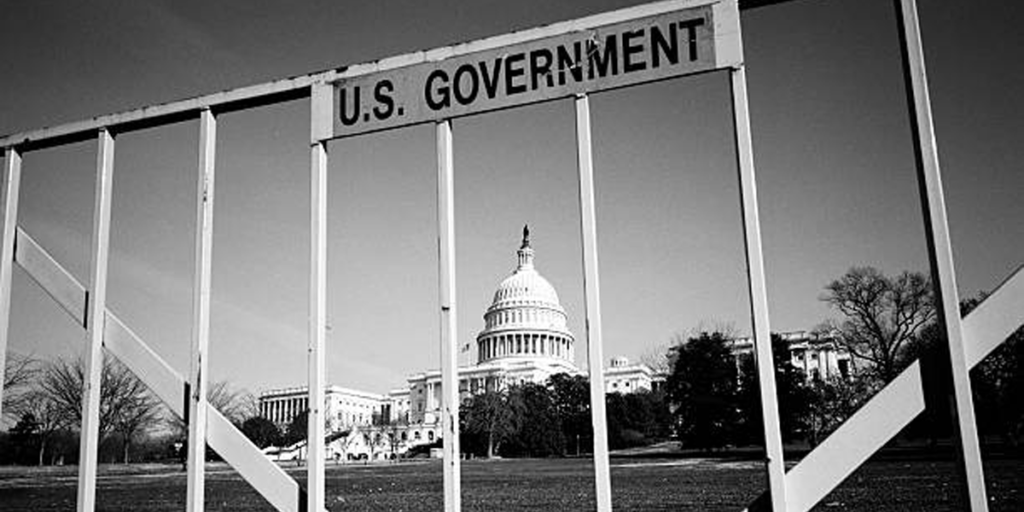
The Latest on the partial government shutdown (all times local): 2:50 p.m. House Speaker Nancy Pelosi is officially postponing President Donald Trump’s State of the Union address until the government is fully reopened. The California Democrat told Trump in a letter Wednesday the Democratic-controlled House won’t pass the required measure for him to give the nationally televised speech from the House floor. Pelosi acted just hours after Trump notified her that he was planning to deliver the speech next Tuesday in line with her original invitation. Pelosi’s moves have left the White House scrambling to devise an alternative plan for the speech, which is one of the president’s top opportunities to lay out his agenda to the public. Pelosi said “I look forward to welcoming you to the House on a mutually agreeable date for this address when government has been opened.” ___ 11:25 a.m. President Donald Trump is urging state and local Republican leaders to “stick together” on his border wall demands. Trump held a conference call with state, local and community leaders Wednesday on the 33rd day of the partial government shutdown. During his remarks, Trump said he would not back down in his push for $5.7 billion for a wall along the U.S.-Mexico border, calling it the “right policy.” The president also acknowledged there was “pressure” due to the shutdown, but argued it was worse for Democrats. Trump said “I think there’s more pressure on them than there is on us.” Polls show Trump gets most of the blame for the shutdown. Trump said: “We need this approved. We have to stick together.” ___ 11:20 a.m. A top White House economist says near-zero growth is possible in the first quarter if the government doesn’t fully reopen before the end of March. But Kevin Hassett, chairman of the Council of Economic Advisers, predicts a “humongous” rebound in the second quarter if the shutdown ends. Hassett told CNN on Wednesday that “we could end up with a number that’s very, very low” for January to March after the effects of an extended shutdown are factored into what typically is a weak first-quarter economic growth report. Pressed on whether that could mean no growth, Hassett said the number could be “very close to zero.” A stalemate between President Donald Trump and Democratic lawmakers over funding a U.S.-Mexico border wall has produced the longest partial government shutdown in U.S. history, now on Day 33. ___ 10:55 a.m. House Democrats are considering drafting a new proposal to provide President Donald Trump with options for securing the border that don’t involve a wall between the U.S. and Mexico. No final decisions have been made, according to a senior Democratic aide who spoke on condition of anonymity because the aide wasn’t authorized to discuss the lawmakers’ private discussions on the record. The proposals are likely to be drafted into a sweeping Homeland Security bill. Democratic Rep. Hakeem Jeffries of New York said Wednesday that personnel, technology and other options “are the things that would actually improve our border security.” Already, House Democrats have added $1.5 billion for border security to legislation being voted on this week. The funding would go toward immigration judges, bolstered infrastructure and aid to Central American countries. —Lisa Mascaro __ 10:15 a.m. The White House isn’t saying whether President Donald Trump will veto a bill that’s in the Senate to reopen the government through Feb. 8 while negotiations continue over his demand for a U.S.-Mexico border wall. But press secretary Sarah Huckabee Sanders also didn’t say that Trump would sign the bill. Sanders declined on Wednesday to “get into hypotheticals” over the bill, which has been passed by the Democratic-controlled House and is due for a vote Thursday in the Republican-led Senate. Sanders says Trump put forward a plan that doesn’t kick the problem down the road. She was referring to a bill also set for a Senate vote Thursday reflecting Trump’s offer to trade border wall funding for temporary protection for some immigrants. Democrats have rejected the plan. Trump says a border wall is non-negotiable. ___ 12:15 a.m. Two different votes are set in the Republican-controlled Senate with the aim to end the partial government shutdown. One vote Thursday will be on a bill reflecting President Donald Trump’s demand for border wall funding in exchange for temporary protections for some immigrants. A second vote is set for a measure already passed by the Democratic-controlled House to reopen the government through Feb. 8. It doesn’t allow money for a border wall but gives bargainers more time to talk. Neither bill is expected to advance under Senate rules requiring at least 60 votes. Senate Democrats have dismissed Trump’s proposal, and it’s unclear whether Senate Republicans will back Trump’s insistence that the government remain closed until lawmakers allocate $5.7 billion for his long-promised border wall with Mexico. Republished with permission from the Associated Press
2019 Oscar nominations have Alabama roots, do tax credits work?

Nominations have been announced for the 2019 Academy Awards, and AL.com reports that Alabama is well represented among the nominees. Hale County This Morning, This Evening was nominated for best documentary feature film. This film, about Hale County, Alabama, “allows the viewer an emotive impression of the Historic South – trumpeting the beauty of life and consequences of the social construction of race, while simultaneously a testament to dreaming – despite the odds.” Up for best picture is the film The Green Book. One of the producers was Alabamian Octavia Spencer. The First Man, based on Auburn professor Emeritus James R. Hansen‘s book on the life of Neil Armstrong, has been nominated for several awards. Alabamian Jason Isbell contributed to the soundtrack for the nominated film A Star is Born. Alabama is tempting to many filmmakers because of their generous tax incentives in a state that offers a wide range of scenery, according to Variety. “Specifically,” they report, “Alabama provides a 35% refundable tax credit on resident above-the-line and below-the-line workers. For non-resident above- and below-the-line personnel, the refundable tax credit is 25%.” They continue “There is also a 25% refundable tax credit on all other qualified expenditures. A $20 million project cap applies. The compensation is $1 million for above-the-line contributions and $500,000 for below-the-line work.” We are considered one of the best states for filming tax incentives. Some believe that the tax incentives do not provide a large enough return on investment. In 2007, Republican Rep. Phil Williams of Huntsville introduced a bill that would abolish the Entertainment Industry Incentive Act of 2009 which provided those incentives. Birmingham Business Journal cited a study by the University of Tennessee that said the state could “almost certainly generate larger and more enduring economic benefits to the state with an alternative use of these taxpayer dollars that is more closely linked to stated economic development goals.” The Alabama Film Office reports that “Alabama has catered to everything from small, independent shorts to massive Hollywood film productions.” A new film, Inheritance, starring Kate Mara (House of Cards) and Simon Pegg (Ready Player One), will begin filming in Birmingham in February, according to Bham Now, which also has a list of films that have been filmed in the city, including Live! and Trading Paint.
Daniel Sutter: Should We Tax Greenhouse Gases?

A group of distinguished economists, including Nobel prize winners and past Council of Economic Advisors members, recently supported a carbon tax. While the economic case for such a tax is strong, I nonetheless think the policy is ill-advised. Today, let’s consider the economics of a carbon tax. A carbon tax would limit emissions of greenhouse gases, most notably carbon dioxide, due to their impact on global warming. The tax differs only subtly in effect from the “cap and trade” policy considered by Congress in 2010; I will not consider the differences here. A tax is probably the best way to limit greenhouse gases if we choose. The economists propose replacing regulations and other policies to limit fossil fuels or encourage alternative energy – from the Clean Power Plan to tax credits for electric cars – with the carbon tax. This makes perfect sense. The pollution problem arises because actions like burning gasoline in a car effectively use clean air without the driver or oil company having to pay for it. The price is too low, resulting in too much pollution. Economist A. C. Pigou hit upon a solution almost a century ago. Tax the good, or better yet the pollution, the amount of damage to the environment. The tax gets reflected in the price, and we can then let prices coordinate economic activity and protect the environment. Prices never prohibit any activity for which someone is willing and able to pay. This is a huge advantage relative to regulation. A carbon tax ensures that we can use fossil fuels for highly valued activities like powering jet planes or running generators for hospitals during blackouts. Regulations often prohibit highly valued uses, causing significant costs. Quantifying environmental damage is always challenging, and the impacts of global warming will not occur for decades. Any tax we impose now must rely on climate models to estimate future impacts. Integrated Assessment Models pioneered by 2018 Nobel Prize winning economist William Nordhaus show how to value the estimated climate impacts. Economic analysis shows that the carbon tax should increase over time. Fossil fuels become more expensive in a predictable manner. These rising prices provide the incentive to invest in electric cars or solar or wind energy without direct subsidies. A carbon tax would also hit “alternatives” to fossil fuels generating significant carbon dioxide emissions. Ethanol blends corn with gasoline and is subsidized as a clean fuel. Yet growing corn uses fossil fuels to power tractors, harvesters, and irrigation equipment. We can avoid wasting money on politically favored non-solutions. Using pollution taxes to fund government offers another benefit. When we tax anything, we get less of it. Taxing income, investment, or employment leaves us with less of things which drive prosperity. Each dollar in taxes raised costs the economy more than a dollar. When we tax pollution, we get less of a bad thing. The economists propose rebating carbon tax revenue to Americans as a climate dividend. This also makes sense. A carbon tax will increase energy prices and poor Americans spend more of their income on energy than others. A carbon tax would be regressive, falling more heavily on lower income families. Each household’s climate dividend would be an equal share of the tax revenue. Poorer households spend a larger share of their income on energy, but high income households consume more energy. Low income households should receive a dividend larger than carbon tax paid. Rebating the revenue might seem to just reverse the tax. Yet this is not true provided that the revenue is not refunded exactly as collected. If paying an extra $50 tax increases our climate dividend by exactly $50, then the refund cancels the tax. If I pay an extra $50 tax, it will be divided among more than 100 million households, so practically speaking I get none of it back. A carbon tax makes economic sense, particularly if we eliminate other climate change regulations and alternative fuels subsidies. But the political process does not always employ policies as economists suggest. So there’s more to this story than just economics, although the rest of the story will have to wait until next time. Daniel Sutter is the Charles G. Koch Professor of Economics with the Manuel H. Johnson Center for Political Economy at Troy University and host of Econversations on TrojanVision. The opinions expressed in this column are the author’s and do not necessarily reflect the views of Troy University.
Alabama ranks 2019’s 5th worst state to raise a family

With the worst infant mortality rate in the country, a high number of separations and divorce, and an unnerving violent crime rate, Alabama has been ranked as the fifth worst state in the nation in a new report a new report by personal finance website WalletHub on the best and worst places to raise a family. To determine the best states in which to put down family roots, WalletHub compared the 50 states across five key dimensions — 1) Family Fun, 2) Health & Safety, 3) Education & Child Care, 4) Affordability and 5) Socio-economics — across 49 key indicators of family-friendliness. The data set ranges from median family salary to housing affordability to unemployment rate. Each metric was graded on a 100-point scale, with a score of 100 representing the most favorable conditions for family life. Here’s how Alabama ranked (1= best; 25= avg.): 40th: % of families with young kids 50th: Infant-mortality fate 35th: Median family Salary (adjusted for cost of living) 43rd: Violent-crime rate 46th: % of Families in poverty 16th: Housing affordability 29th: Unemployment rate 44th: Separation & divorce rate See how Alabama compares to the rest of the country: Source: WalletHub Best states for families: 1. Minnesota 2. Massachusetts 3. North Dakota 4. Vermont 5. New Hampshire 6. New York 7. Wisconsin 8. New Jersey 9. Rhode Island 10. Nebraska Worst states for families: 41. Georgia 42. Oklahoma 43. South Carolina 44. Arkansas 45. Nevada 46. Alabama 47. West Virginia 48. Louisiana 49. Mississippi 50. New Mexico
Supreme Court returns to gun rights for 1st time in 9 years
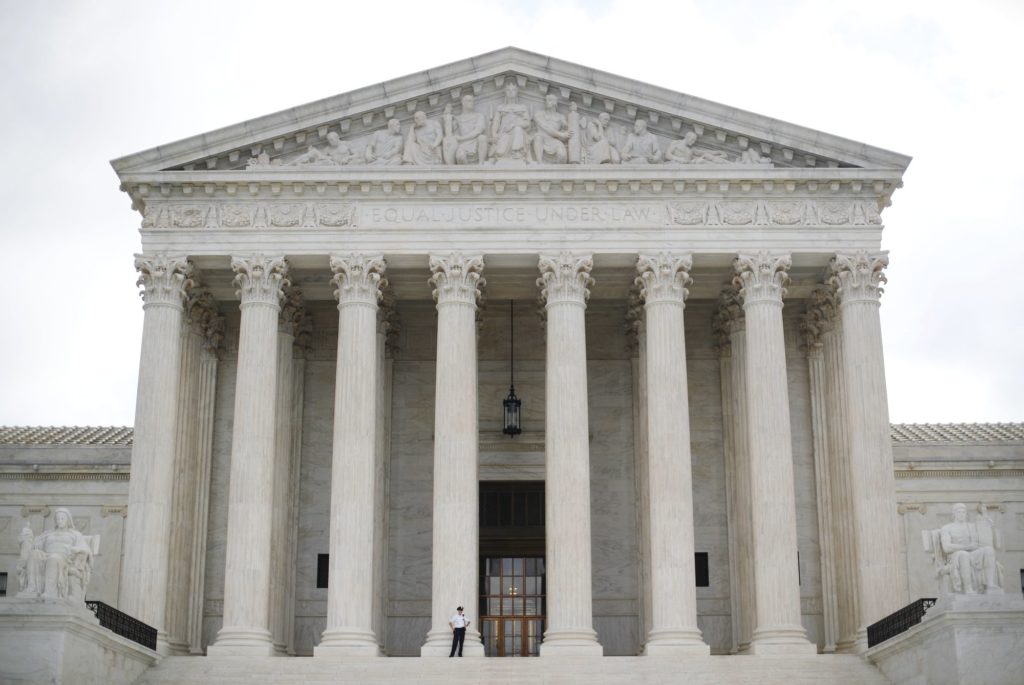
The Supreme Court said Tuesday it will take up its first gun rights case in nine years, a challenge to New York City’s prohibition on carrying a licensed, locked and unloaded handgun outside the city limits. The court’s decision to hear the appeal filed by three New York residents and New York’s National Rifle Association affiliate could signal a revived interest in gun rights by a more conservative court. The case won’t be argued until October. The challengers are represented by prominent lawyer Paul Clement, who has been urging the justices to elaborate on the extent of constitutional gun rights the Supreme Court declared in decisions in 2008 and 2010. The court had previously rejected several appeals. The court may be more willing to take on a gun rights case now that Justice Anthony Kennedy has retired and been replaced by Justice Brett Kavanaugh, who was President Donald Trump’s second high-court nominee to be confirmed. Clement says the case “is a perfect vehicle to reaffirm that those decisions and the constitutional text have consequences.” Joining in support of gun rights, 17 states said the court should break its years-long silence and use the case to define the scope of gun rights under the Constitution and the level of scrutiny, or skepticism, judges should apply to gun laws. New York’s ordinance allows people licensed to have handguns to carry them outside the home to gun ranges in the city. The guns must be locked and unloaded. The city residents who filed suit want to practice shooting at target ranges outside the city or take their guns to second homes elsewhere in New York state. Lower courts had rejected the challenge. The city’s top lawyer, Zachary Carter, urged the court to reject the case, arguing that the restrictions allowed New York police to reduce the number of guns carried in public. There are seven shooting ranges in the city and at least one in each of the city’s five boroughs, Carter said. Republished with permission from the Associated Press.
Donald Trump wants to deliver State of Union next week as planned
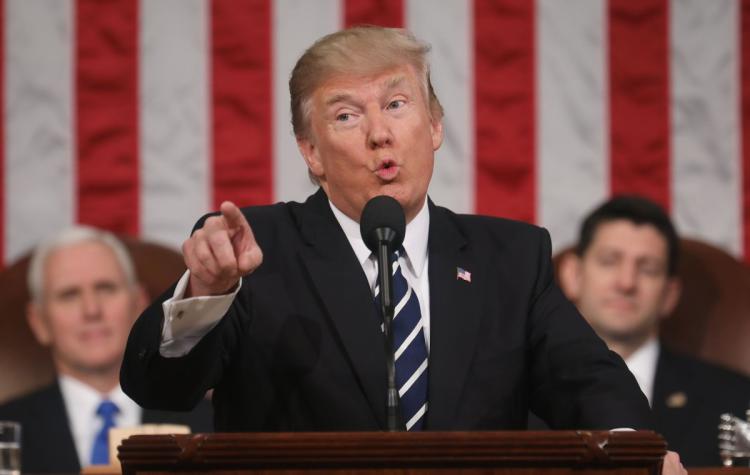
he White House is moving forward with plans for President Donald Trump to deliver his State of the Union speech next week in front of a joint session of Congress — despite a letter from House Speaker Nancy Pelosi requesting he delay it. The White House sent an email to the House sergeant-at-arms asking to schedule a walk-through in anticipation of a Jan. 29 address, according to a White House official who was not authorized to discuss the planning by name and spoke on condition of anonymity. “Nancy Pelosi made the invitation to the president on the State of the Union. He accepted,” said White House spokeswoman Sarah Huckabee Sanders. “At this point, we’re moving forward.” The move is the latest in a game of political brinksmanship between Trump and the House Speaker as they remain locked in an increasingly personal standoff over Trump’s demand for border wall funding that has forced a partial government shutdown that is now in its second month. The gamesmanship began last week when Pelosi sent a letter to Trump suggesting that he either deliver the speech in writing or postpone it until after the partial government shutdown is resolved, citing security concerns. But the White House maintains Pelosi never formally rescinded her invitation, and is, in essence, calling her bluff. “She has not canceled it. She asked us to postpone it,” White House spokesman Hogan Gidley said in an interview Tuesday with Fox News Channel. “We have no announcement at this time,” he said, “but Nancy Pelosi does not dictate to the president when he will or will not have a conversation with the American people.” At the same time, the White House is continuing to work on contingency plans to give Trump a backup in case the joint-session plans fall through. The president cannot speak in front of a joint session of Congress without both chambers’ explicit permission. A resolution needs to be agreed to by both chambers specifying the date and time for receiving an address from the president. Officials have been considering a list of potential alternative venues, including a rally-style event, an Oval office address— as Pelosi previously suggested — a speech before the Senate chamber, and even a return visit to the U.S.-Mexico border as Trump is expected to continue to hammer the need for a barrier, according to two others familiar with the discussions. Multiple versions are also being drafted to suit the final venue. The Constitution states only that the president “shall from time to time give to the Congress Information of the State of the Union,” meaning the president can speak anywhere he chooses or give his update in writing. But a joint address in the House chamber, in front of lawmakers from both parties, the Supreme Court justices and invited guests, provides the kind of grand backdrop that is hard to mimic and that this president, especially, enjoys. Still, North Carolina’s House Speaker Tim Moore wrote a letter inviting Trump to deliver the speech in the North Carolina House chamber. And Michigan House Speaker Lee Chatfield on Friday invited Trump to deliver the address at the state Capitol in Lansing instead. Trump called Moore Monday evening, according to his office, and spoke by phone with Chatfield Tuesday morning, Chatfield tweeted. “I understand you have other plans for #SOTU, but as we discussed, I look forward to hosting you in Michigan again soon,” Chatfield wrote. Pelosi in her letter had cited the impact of the ongoing shutdown on the Department of Homeland Security and the U.S. Secret Service, questioning whether they could secure the speech given that they have been operating without funding. Homeland Security Secretary Kirstjen Nielsen responded by assuring that DHS and Secret Service were “fully prepared to support and secure the State of the Union.” Asked about the letter by reporters Tuesday, Pelosi did not address the White House’s decision, saying only: “We just want people to get paid for their work.” Senior White House staff had been in a morning huddle discussing the upcoming speech when news of Pelosi’s letter first broke on TV. The power play — which Trump countered by revoking Pelosi’s use of a military aircraft, thereby canceling a congressional delegation visit to Afghanistan — had put the status of the marquee speech in limbo, leaving staff scrambling to figure out how to proceed. “We’ll keep you posted,” Sanders had told reporters when asked for a status update Friday. In their standoff, Trump has also accused Pelosi of behaving “irrationally,” while Pelosi has refused to negotiate with Trump on border funding until he agrees to reopen the government. In a tweet Sunday, Trump wrote that he was “still thinking about the State of the Union speech” and that there were “so many options – including doing it as per your written offer (made during the Shutdown, security is no problem), and my written acceptance.” “While a contract is a contract,” he wrote, “I’ll get back to you soon!” Republished with permission from the Associated Press.
Groundbreaking set this week for Alabama rocket engine plant
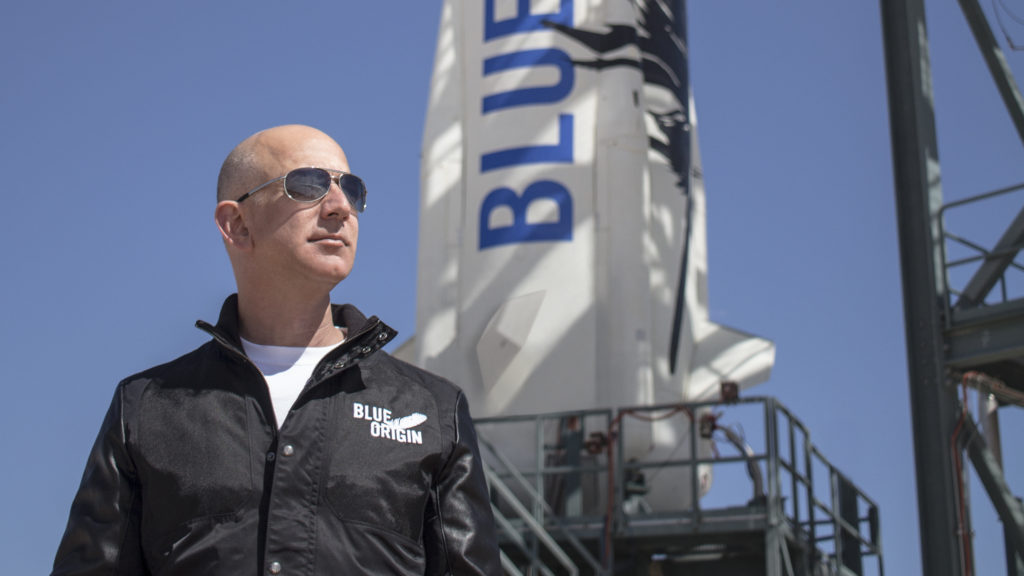
A company founded by Amazon CEO Jeff Bezos will break ground in Alabama later this week on a plant to build a new rocket engine. Al.com reported that Blue Origin’s groundbreaking is set Friday in Huntsville. The plant will make Blue Origin’s BE-4 engine, which will power the next generation of rockets produced by United Launch Alliance in Decatur. The engine will be powered by liquid oxygen and liquefied natural gas. Blue Origin said in 2017 it would locate in Alabama near the Decatur ULA plant. The engine will also power Blue Origin’s next-generation New Glenn rocket. That rocket is under development. The company said the plant will have about 340 employees and cost about $200 million. The rocket will be assembled in Florida near Kennedy Space Center launch site. Republished with permission from the Associated Press.


